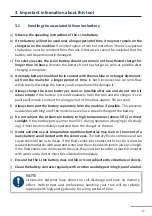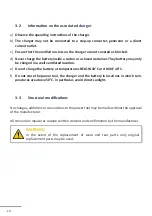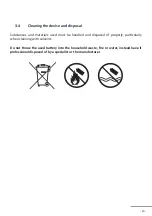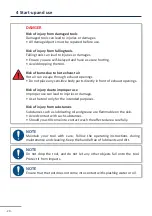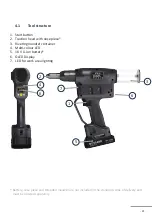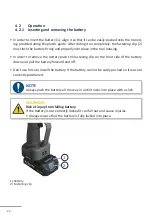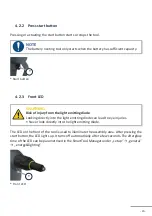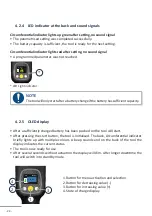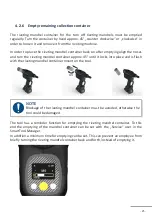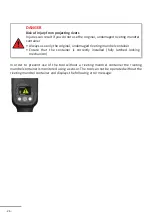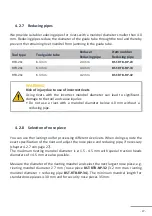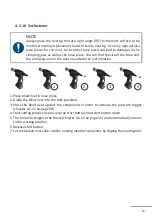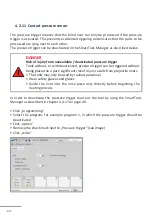
- 15 -
h)
Keep handles and gripping surfaces dry, clean and free of oil and grease.
Slippery handles and gripping surfaces do not allow safe operation and control of the
power tool in unforeseen situations.
i)
Use the correct power tool.
Do not use under-performing tools for heavy loads. Do not
use tools for purposes and work for which they are not intended.
j)
Check your device for damage.
Before continued use of the tool safety equipment
must be tested for proper and intended function. Check whether the function of mov
-
ing parts is okay, whether they do not jam, whether any parts are broken, whether all
other parts function properly and whether all conditions which must be met for the
proper operation of the device have been met. Damaged protective devices and parts
should be properly repaired, or replaced by trained customer service unless otherwise
specified in this operating instructions. Damaged switches must be replaced by a cus
-
tomer service workshop. Do not use any tools which cannot be properly switched on
and off using the start button.
2.5
Use and handling of battery tools
a)
Charge the battery only with charging devices which are recommended by the man-
ufacturer.
There is a risk of fire if the battery is used on an unsuitable charger and the
battery can be permanently damaged.
b)
Use only the specifically designated battery for the power tool.
The use of other bat
-
teries can lead to injuries and the risk of fire.
c)
Keep the unused battery away from paper clips, coins, keys, nails, screws or other
small metal parts which could cause a bypass of the contacts. Do not open the bat-
tery and do not short circuit.
A short circuit between the battery contacts can lead to
burns or fire.
d)
Fluid can leak out of the battery in the event of incorrect use. Avoid contact with it. In
the event of accidental contact with skin rinse with water. If the fluid comes into con-
tact with the eye seek medical help.
Leaking battery fluid can lead to skin irritations or
burns.
e)
Do not use damaged or altered batteries.
Damaged or altered batteries can behave
unpredictably and can lead to fire, explosion or injury.
f)
Do not expose a battery to fire or high temperatures.
Fire or temperatures above
130°C can cause an explosion.

















